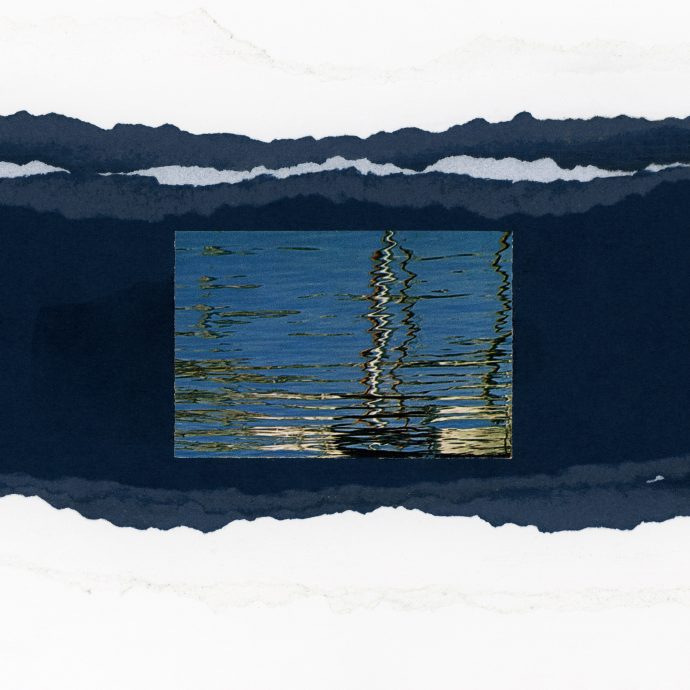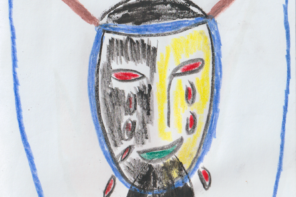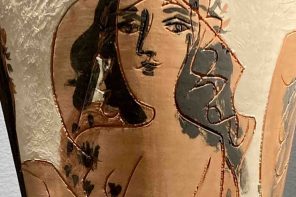Read “On the Production of Wisdom” by Tedi López Mills, translated by Robin Myers.
“On the Production of Wisdom” is the final essay in The Book of Explanations, by Tedi López Mills, forthcoming from Deep Vellum Publishing in 2022. The Spanish-language original was published in Mexico (Editorial Almadía) as El libro de las explicaciones in 2012, and I must have first read it a year or two after that, around the time we met in Mexico City.
While López Mills has written several works of prose, she is first and foremost a poet. I cringe to hierarchize writers and genres in this way, and my immediate instinct is to apologize to her for it. I guess I’d only venture to leave the sentence intact because it’s part of what attracted me to her work in the first place: I myself write mostly poetry, and I was translating poetry—only poetry—before I ever got it into my head that I might make a living as a translator of prose. I realize now, years later, that López Mills’s essays were among the first works of literary prose that I ever tried to translate (I started with one or two pieces in the collection and resumed translation of the entire book last year, when Deep Vellum decided to publish it). There’s something glittery and glancing about her style, prismatic, both precise and uncontainable. It unsettles me in the way that poetry often does: it can change scale, shape, angle, and approach at any time. It observes its own manufacture, and the observation alters it.
Each of the fourteen essays in The Book of Explanations responds to an implicit or explicit question. The title is ironic, because the book doesn’t explain much in the end; it explores—which is to say, it asks, again and again—more than it answers in any sort of categorical way. Some of the essays involve her parents, childhood, adolescence. Others engage with books that shaped her thinking as a young person. Still others meditate on the cultivation of habits like skepticism, smoking cigarettes, or coexistence with cats.
In an interview with López Mills I recently re-read, an earnest reporter coaxes her to elaborate on the “personal” nature of these essays. You talk about your family, your past, he says (I’m paraphrasing)—so writing the book must have been an exercise of self-knowledge, right? Well, López Mills more or less responds, the book actually offers the total opposite of self-knowledge; it’s constantly exploring the precariousness of the “self.” When we experience something, who is it—what sort of voice or presence or sentient being inside us—that does the experiencing? What could possibly be less reliable than the narrators we all are, trying to make sense of our lives as we live them?
“On the Production of Wisdom,” like many other essays in the book, is interested in the struggle to adopt a personal philosophy, a moral code, an interpretation of the world consistent enough to guide us wherever we go. This essay in particular is also interested in the relationship between wisdom and goodness, and it’s predicated on the author’s belief that she is neither wise nor truly good: “Wise people don’t like to speak poorly of others, which is a total mystery to me, and also a literary obstacle, because it prevents life from being told as a novel.” Later on: “I’m too morbidly curious about the accidents of thought, mine and other people’s.”
Accidents of thought: these are the book’s real protagonists. As Daniel Saldaña París remarked after the publication of the Mexican edition, López Mills tracks “the genuine surprise caused by the dislocation between language and the world.” In this way, “every poetic discovery splits in two: the referent (the situation, the sensitivity required to understand its sign) and the act of referring (the awareness of speaking, the suspicion toward language).”
It’s a suspicion that becomes curiously inclusive in the end. When all is said and done, and as she follows her own accidents of thought, López Mills proves as skeptical of pessimism as she is of optimism, as genuinely interested in the pursuit of wisdom as she is resigned to the belief that she will never achieve it.
“On the Production of Wisdom” draws from Marcus Aurelius, Nietzsche, and the Bhagavad Gita, and it reflects repeatedly on the fact that the “private” never truly is (“The mind is a public place, a tiny polis”). Which means I’m never sure whether or not I should be surprised when the moments of purest faith (I know I’m taking a liberty with this word) emerge with no books, no words, no people anywhere in sight.
Take this tender, almost offhanded remark: “Sometimes, blessedness is like a cat’s sudden entrance into a shadowed space.”
And then it’s instantly, implicitly gone.
Robin Myers is a Mexico City-based translator and poet. Recent translations include Animals at the End of the World by Gloria Susana Esquivel (2020), Cars on Fire by Mónica Ramón Ríos (2020), and The Restless Dead by Cristina Rivera Garza (2020); coming later in 2021 are works by Leonardo Teja, Keila Vall de la Ville, Daniel Lipara, and Adalber Salas Hernández. She writes a monthly column for Palette Poetry. Her translation of Tedi López Mills’ The Book of Explanations will be published by Deep Vellum in 2022.
Tedi López Mills (Mexico City, 1959) has published twelve books of poetry: Cinco estaciones; Un lugar ajeno; Segunda persona (Efraín Huerta Award); Glosas; Horas; Luz por aire y agua; Un jardín, cinco noches (y otros poemas); Contracorriente (José Fuentes Mares Award; English translation by Wendy Burke for Phoneme Media); Parafrasear; Muerte en la rúa Augusta (Xavier Villaurrutia Award; English translation by David Shook for Eyewear Publishing); Amigo del perro cojo (Carlos Pellicer Ibero-American Poetry Award); and Lo que hicimos. She is also the author of five prose works: La noche en blanco de Mallarmé, El libro de las explicaciones (Antonin Artaud Award), La invención de un diario, Mi caso Rimbaud, and Cascarón roto. She is a member of Mexico’s National System of Artists.
Translation Series curated by Jae Kim.




